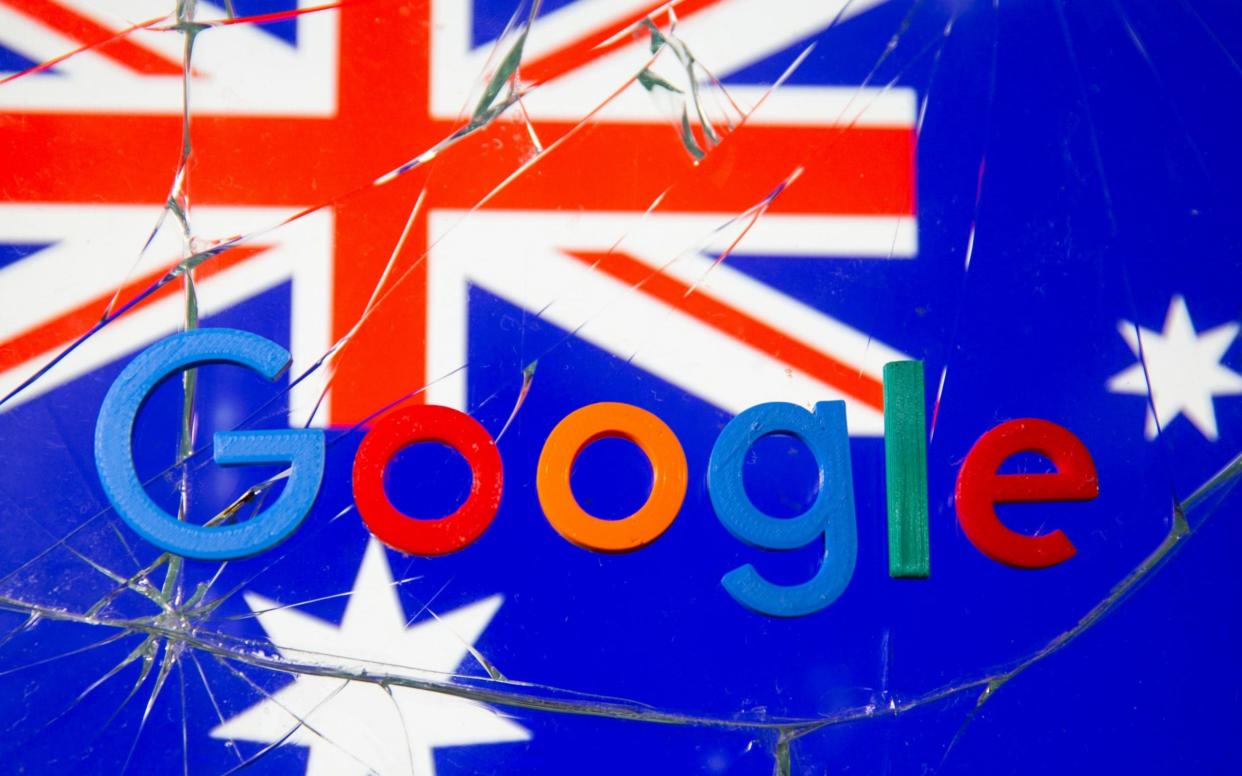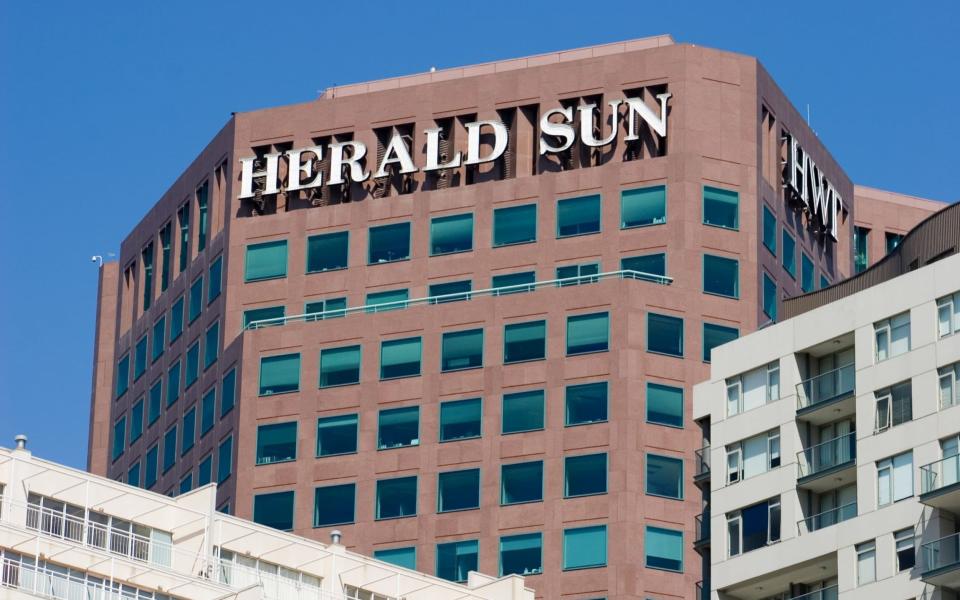Google threatens to leave the field if it has to play by Aussie rules

As a global power broker, Rupert Murdoch’s enormous behind the scenes influence is well known.
Nowhere, however, is it more pervasive than in his native Australia, where his News Corp media empire started out and where the family has retained close links with successive governments for decades.
As Scott Morrison, Australia’s prime minister, was drawn into a growing “stoush” – Aussie slang for a fight – with Google last month, it’s no surprise that many observers saw the hidden hand of Mr Murdoch egging him on.
There is a huge amount at stake. For years, Mr Murdoch and others in the news business have griped that Google and Facebook have enjoyed a free lunch, earning cash from running ads alongside news content which they do not pay for.
Now Australia is considering new laws which would change the game. Under the draft legislation, which will be voted on later this year, for the first time Google and Facebook will be forced to shell out for news stories they display to users, tipping the balance back into the favour of news organisations.

Addressing power imbalances
While newspaper proprietors love it, critics say the new rules amount to a shake down of the tech giants.
Either way, the row has proved explosive and prompted Google to issue an extraordinary threat. “We would have no real choice but to stop making Google Search available in Australia,” said Google’s Australia boss Mel Silva. Morrison issued a gruff response, saying: “Australians don’t respond to threats.”
The dust up down under is being closely watched. If Australia succeeds in imposing the rules, it could open the door to similar steps in other markets, including the UK.
“This is a classic case of a global corporation attempting to impose its will on a democratically elected government,” says Peter Lewis, of communications company Essential and a columnist for Guardian Australia.
The debate in Australia stretches back years. Local news organisations have suffered a long decline and advertising revenues have evaporated. At the same time, Facebook and Google have grown to a 70pc share of the global digital ad market and are worth a combined $2 trillion (£1.46 trillion).
In April, Morrison’s government asked regulators to draw up rules to “address bargaining power imbalances”. The laws forcing Google and Facebook to strike deals with news publishers would be far-reaching. Any news business with over A$150,000 (£83,000) in revenue could demand payments. Google and Facebook face the threat of 10pc fines of their annual turnover for non-compliance.

Google claims the rules are unjust and would undermine the technology on which search engines rely. In a regulatory filing, Google said: “There has never been a basis in Australian law to require payment for them [links]... because these uses are a net benefit to news businesses.”
They have also criticised changes forcing them to notify publishers, before any other websites, 28 days before they make changes to their search algorithms.
News Corp, meanwhile, has pushed for the policies to be applied to “all platform use of news content”, in addition to Google and Facebook.
The end of Google Australia?
In the past fortnight, the prime minister’s battle with Google escalated further. Morrison revealed Australia was in talks with rival Microsoft, which says it stood ready to provide its alternative Bing search engine, if Google quits, and pledged to pay its share. The PM held a video call with Satya Nadella, Microsoft chief, and Brad Smith, its president. In a blog post, Smith said: “While other tech companies may sometimes threaten to leave Australia, Microsoft will never make such a threat.”
Still, in reality some consumers might resent the loss of Google search, which is used by 94pc of Australians. Bing is used by just 3.6pc.

Google, meanwhile, has also begun a charm offensive to publishers in Australia, offering them a share of a $1bn global pot of cash earmarked for a new product, Google News Showcase, that would include their articles.
Jason Kint, of Digital Content Next, a media trade group whose members include News Corp, is sceptical of its threats. He says: “We believed it was highly unlikely Google would pull out of Australia even prior to Microsoft making it crystal clear the garbage Google is claiming in its lobbying.”
Would Google really follow through? It has form. Google shut down its Google News product in Spain after it was forced to pay fees to publishers. In 2010, it pulled out of China over censorship. Australia is worth just A$4bn to Google, a fraction of its roughly $160bn annual turnover.
The value of news
Google and Australia’s news publishers are currently miles apart on what they believe their news is worth. News Corp has said it could be owed up to A$1bn from the tech giants. Google, on the other hand, has claimed it makes just A$10m from news.
“It is possible a compromise will be reached, but that would require movement on both sides,” says Derek Wilding, of the University of Technology Sydney. On Thursday, peace talks between Sundar Pichai, Google chief executive and Morrison were said to have been “constructive”. Australia’s Senate is due to report on the law by Feb 12, which could be voted on later in the year.
While regulators are watching with interest, it is not clear whether other nations will go as far as Australia. The UK is considering the creation of a Digital Markets Unit which would regulate the ties between tech and the news industry.
In France, regulators have taken new EU copyright rules and used them as leverage to push Google to pay – but have only secured €25m (£22m) compared to the €250m publishers were hoping for.
Google’s charm offensive may tone down Australia’s media code. But on the Murdochs’ home turf, tech giants will almost certainly face a high price to play by Aussie rules.

